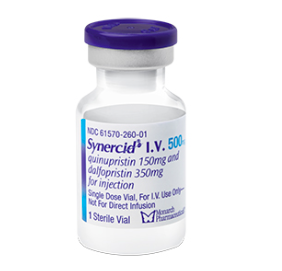Are you curious about antibiotics beginning with the letter Q? While they may not be as common as other classes, some powerful options start with this unique letter. Exploring these lesser-known antibiotics can shed light on alternative treatments and their vital roles in combating infections. Let’s dive into the fascinating world of antibiotics that start with Q!
1. Quinupristin-Dalfopristin

What it is and its antimicrobial nature:
Quinupristin-Dalfopristin is a combination antibiotic that belongs to the streptogramin class. It is used to fight certain resistant bacteria that do not respond well to other antibiotics, especially some types of Gram-positive bacteria.
Health Benefits:
– Effectively treats infections caused by resistant bacteria
– Helps combat bacteria like vancomycin-resistant Enterococcus faecium (VRE)
– Reduces the spread of antibiotic-resistant infections
How to Take It:
Usually given as an intravenous (IV) infusion in hospitals. Dosage depends on the infection type and severity, often administered every 8 to 12 hours under medical supervision.
Compatibility:
– Use in severe bacterial infections, especially resistant strains
– Not suitable for self-administration
– Works well alongside other antibiotics for resistant infections
2. Quinolone Antibiotics
What it is and its antimicrobial nature:
Quinolones are a broad class of antibiotics that target various bacteria by interfering with their DNA replication. Common examples include ciprofloxacin, levofloxacin, and ofloxacin. They are effective against many bacterial infections.
Health Benefits:
– Used to treat urinary tract infections, respiratory infections, skin infections, and more
– Provide wide-spectrum antibacterial action
– Help in reducing bacterial growth rapidly
How to Take It:
Often available as oral tablets, capsules, or liquids. Typical doses vary; for example, ciprofloxacin may be 250-750 mg twice daily. Always follow the prescription instructions.
Compatibility:
– Suitable for infections like UTI, sinusitis, bronchitis, and pneumonia
– Can be paired with probiotics to support gut health during treatment
– Avoid taking with dairy or antacids, which can reduce absorption

Eleena Wills is a passionate health and wellness writer with over 5 years of experience in simplifying complex health topics for everyday readers. She holds a background in health communication and has contributed to multiple reputable wellness platforms. Eleena is committed to sharing science-backed tips on nutrition, mental well-being, fitness, and lifestyle habits that support long-term health. When she’s not writing, she’s experimenting with healthy recipes or practicing yoga.
